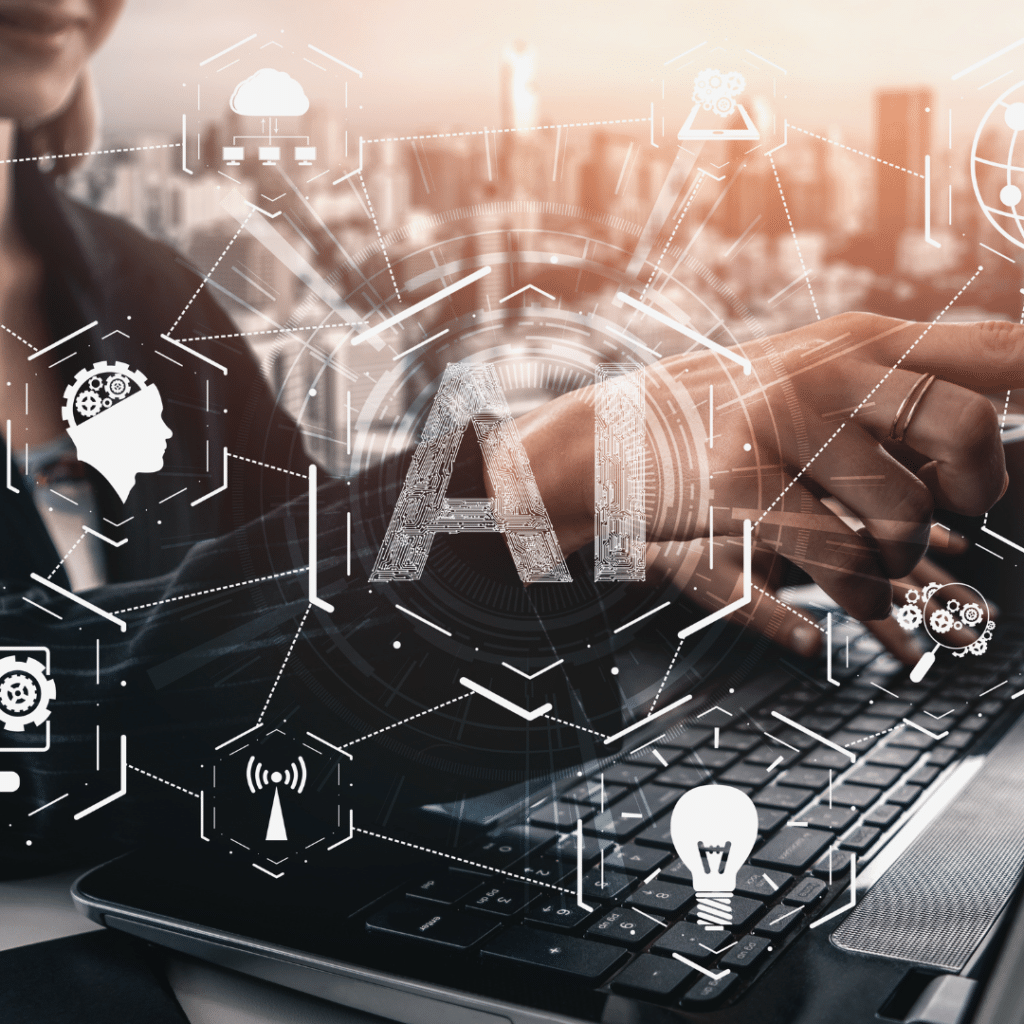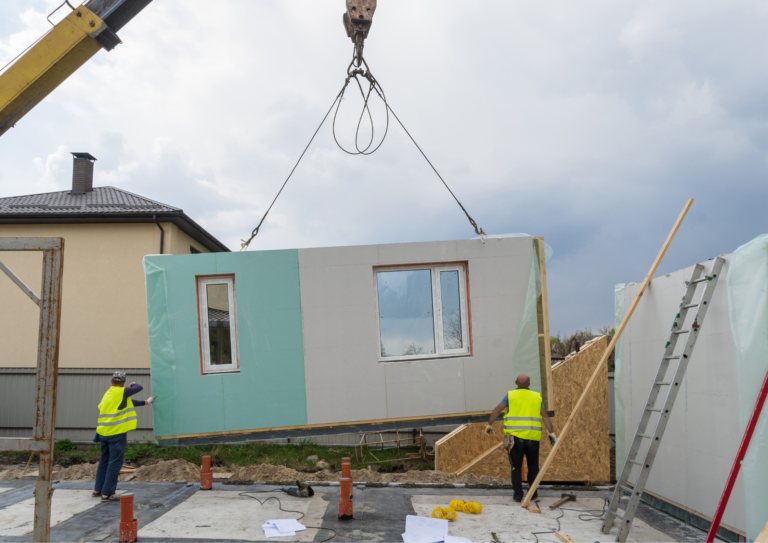In this era of progress, the integration of artificial intelligence (AI) and conventional fields has brought about groundbreaking changes, in various industries. Among these civil engineering takes the lead in embracing this transformative shift. As it becomes a part of our lives from personal assistants to self-driving cars, artificial intelligence in civil engineering has opened doors to enhanced efficiency, sustainability, and groundbreaking ideas.

Role of Artificial Intelligence in the Design Process:
The design phase of civil engineering projects requires planning and optimization to ensure that structures are strong and functional. Machine learning-powered AI algorithms excel at analyzing amounts of data to generate optimized designs. These algorithms can quickly evaluate design parameters, such as material strength, load distribution, and environmental factors to propose solutions.
AI-driven design tools allow engineers to explore a range of design possibilities and iterate quickly resulting in efficient structures that meet or surpass project requirements. Additionally, AI can predict design flaws and suggest solutions to mitigate risks improving the overall safety and reliability of infrastructure projects.
Role of Artificial Intelligence in the Construction Process:
During the construction phase, AI plays a role in streamlining project management boosting productivity, and ensuring quality control. AI-powered drones and robots are revolutionizing construction sites by performing tasks like site surveys progress monitoring and precise bricklaying with speed and accuracy.
Moreover, AI algorithms analyze real-time data, from sensors embedded in construction equipment and materials to identify anomalies and forecast maintenance needs. This reduces downtime while enhancing safety measures. By automating tasks and optimizing resource allocation AI accelerates project timelines while minimizing cost overruns.
Role of Artificial Intelligence in the Maintenance Process:
AI plays a role in the maintenance phase even after infrastructure projects are finished. It brings value by facilitating maintenance strategies. By analyzing historical performance data and monitoring real-time sensor information, AI algorithms can forecast equipment failures before they happen. This enables proactive maintenance actions to be taken in a useful and sustainable manner. Furthermore, we can perform structural health monitoring of infrastructure assets using artificial intelligence-powered monitoring systems which can help us to look for any signs of deterioration or structural weakness in infrastructures. This early detection will help us to take preventive measures on time and go for any retrofitting procedures.
Benefits of Artificial Intelligence in Civil Engineering
There are lots of benefits to integrating artificial intelligence into civil engineering. Some of them are discussed below:
- AI enhances productivity by streamlining workflows automating tasks and speeding the decision-making processes. This results in on-time project completion and cost savings.
- Utilizing AI-driven predictive analytics, potential hazards, and safety risks can be identified in advance. This allows for interventions to prevent accidents and ensure the well-being of workers and the general public.
- AI algorithms generate designs that maximize performance while minimizing material usage and environmental impact. This promotes sustainability by prioritizing resource allocation.
- By minimizing construction delays, optimizing resource allocation, and facilitating maintenance AI helps reduce project costs while enhancing budget predictability.
- With the assistance of AI technology engineers can explore design concepts, materials, and construction techniques that were previously impractical or unfeasible. This encourages innovation within the field.
Challenges of Artificial Intelligence in Civil Engineering:
Despite its potential for transformation integrating AI into engineering poses several challenges. Some key hurdles include:
- The effectiveness of AI algorithms relies heavily on high-quality data for training purposes and decision-making. However, accessing data with ensured accuracy is often a challenge within the civil engineering domain.
- Decisions made by AI systems can sometimes be difficult to interpret or validate independently. These factors raise concerns about their reliability and trustworthiness, among stakeholders.
- AI brings forth concerns related to biases in decision making, safeguarding data privacy and the potential displacement of human workers due to automation.
- The swift progress of AI technology surpasses the establishment of frameworks presenting obstacles, in upholding regulations and tackling emerging legal matters.
Future of Artificial Intelligence in Civil Engineering
Looking ahead the future of artificial intelligence in civil engineering is filled with possibilities. The industry will be greatly transformed by advancements in AI driven design optimization, robotics and predictive analytics. These technological breakthroughs will empower engineers to tackle challenges with precision and efficiency.
In addition to that, emerging technologies like design augmented reality and 3D printing will work hand in hand with AI to unlock new avenues for innovation in infrastructure design, construction and maintenance. What’s more the use of AI-driven twins – replicas of physical assets – will revolutionize asset management by providing real-time insights into the performance and condition of infrastructure systems.
However fully realizing the potential of AI in engineering requires collaboration among engineers, data scientists, policymakers and other stakeholders. Together they must address hurdles as well as ethical and regulatory considerations. By embracing AI as a catalyst for innovation and sustainable development the civil engineering community has an opportunity to shape a future where infrastructure is smarter, safer and more resilient than before.
Brickborne believes in accuracy and time construction without wastage of resources. We believe in economical and sustainable construction. With the advancing world, software is here to assist us in the construction field. Brickborne provides construction drawings as per codes of the region, 3D modeling, rendering, and animation walkthroughs of both interior and exterior, and quantity surveying and cost estimation. Choose us to change your dreams into reality as we say, Brickborne- We Design Your Ideas!





